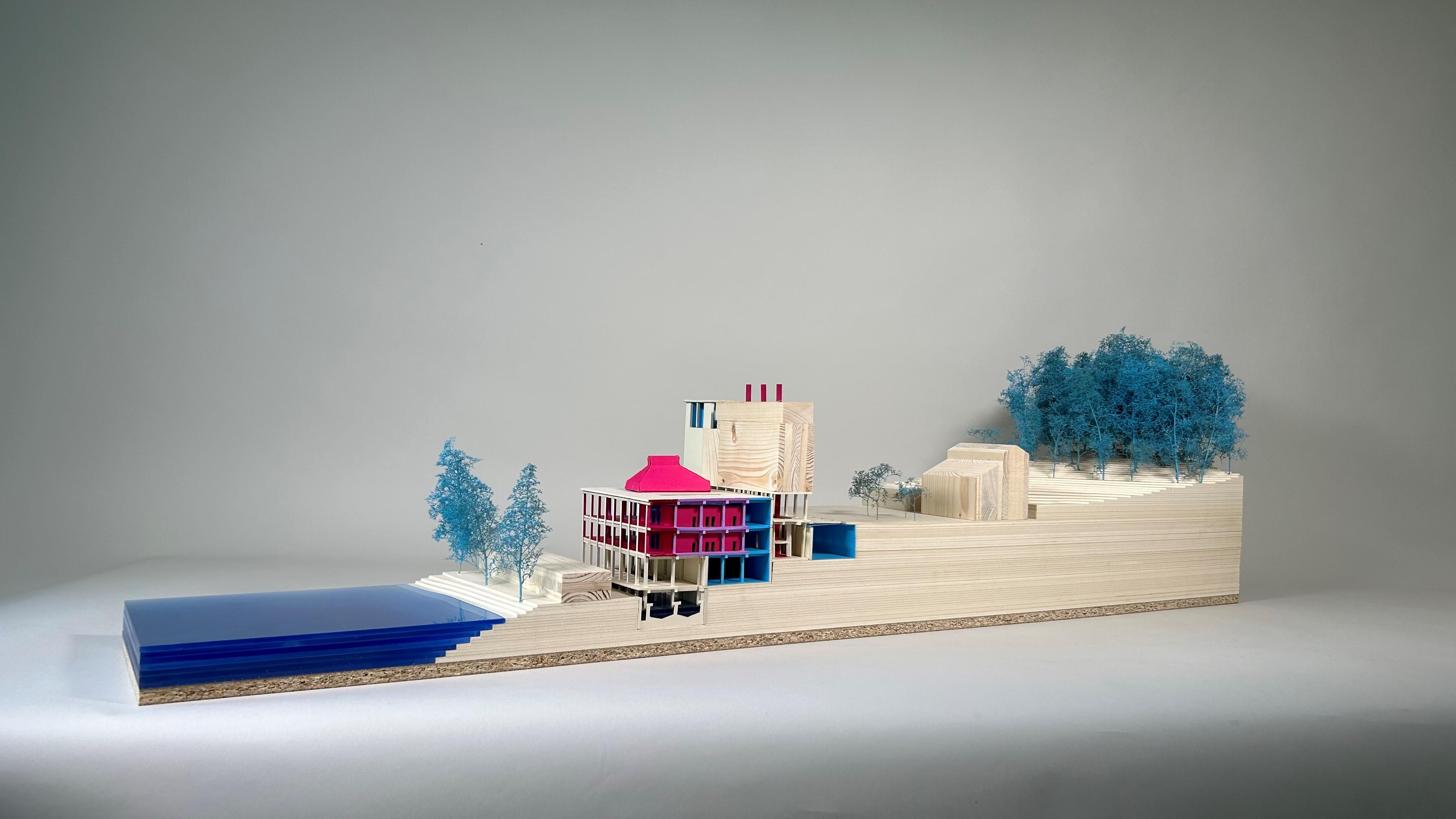2024 Durabilis Award: focusing on solutions and risks

Luana Ferrari, Vibhu Baibhav, Julia Gallmeier, Eloïse Richard, Julien Pignat © 2024 UNIL Fabrice Ducrest + DR
How can we ensure a low-carbon economy by 2050? What kind of sustainable housing can be imagined? The winners of the 2024 Durabilis prize awarded by EPFL and UNIL suggest ways forward, while raising awareness of potential risks.
The Durabilis Award annually recognizes student work with a strong sustainability component, achieving a grade above 5 out of 6. This year, five winners from EPFL and the University of Lausanne (UNIL) received a prize (CHF 1,000 for master's theses, 500 for the bachelor's thesis) for their exceptional projects, selected from 38 submissions. The ceremony took place on Thursday, November 28.
The three EPFL students present practical solutions for a more sustainable future, while the two UNIL students address the political and ideological barriers to sustainable ideals. Philippe Thalmann, professor at EPFL's Laboratory of Urban and Environmental Economics and president of the jury, was full of praise when he awarded the prizes, referring in turn to their "remarkable character" and the "sensitivity," "depth," "rigor," and "finesse" of the work.
Returning to pre-modern housing practices
Luana Ferrari, an EPFL architecture graduate, won for her master’s thesis, “Transhumance: In Search of Sustainable Comfort,” which reimagines a former factory as a bioclimatic collective housing. She calls for a reconsideration of the modern domestic “hyper-comfort” that is disconnected from environmental and social realities. Instead, she suggests a concept inspired by pre-modern practices. Her design encourages seasonal adaptation, suggesting inhabitants move within the building to seek optimal microclimates throughout the year. The communal housing model she envisions promotes resource sharing and dynamic, seasonal use of shared spaces.

Reusing spaces and materials
Similarly, Julien Pignat, another EPFL architecture graduate, explored the reuse of construction materials. His project focuses on redeveloping the Plaines-du-Loup site in Lausanne by transforming existing structures currently used by the Service des automobiles et de la navigation. Using materials salvaged from the demolition of nearby Beaulieu halls, he proposes building a school and a sports facility. His approach also incorporates a social dimension, optimizing space use beyond school hours and diversifying activities in the area.
An energy model for decarbonized industries
Vibhu Baibhav, an EPFL mechanical engineering graduate and PhD student in industrial and energy systems engineering, addressed the decarbonization of energy-intensive European industries. His master’s thesis presents an energy system optimization model to balance economic needs and environmental goals. He identifies carbon capture, electrification of industries, transportation, and buildings, as well as biomass utilization, as key strategies to achieve carbon neutrality by 2050. However, he warns that without sufficient green energy development, some sectors may struggle to operate.
Political and philosophical questions
At UNIL, the award-winning students, both graduates of the Faculty of Geosciences and Environment, raise fundamental questions—legal and political for one, and philosophical for the other—each highlighting potential pitfalls in environmental matters.
Julia Gallmeier's bachelor's thesis examines the impact of the Energy Charter Treaty (ECT) on the climate policies of its member countries. The ECT protects foreign investors through an arbitration mechanism that allows them to claim financial compensation if their interests are harmed. For instance, a Switzerland-based company sued Germany over its decision to shut down a coal-fired power plant. The student calculated that in Germany, the volume of carbon emissions attributable to companies based in Switzerland and potentially protected by the ECT exceeds Switzerland's annual emissions. Now that the European Union is seeking to prevent arbitrations between its member states, a potential risk, according to the young graduate, is that “Switzerland could become a haven for fossil fuel companies seeking ECT protection”.
Eloïse Richard, in her master’s thesis, explored the intellectual and political history of environmental Malthusianism in France during the late 20th century. This concept links environmental crises to overpopulation and has influenced ecological and anarchist, as well as colonialist, nationalist, and xenophobic movements. She highlighted the dangers of far-right appropriations of environmental Malthusianism, which have justified sexist and xenophobic policies. Richard concluded by emphasizing the need for an “anti-fascist ecology.”